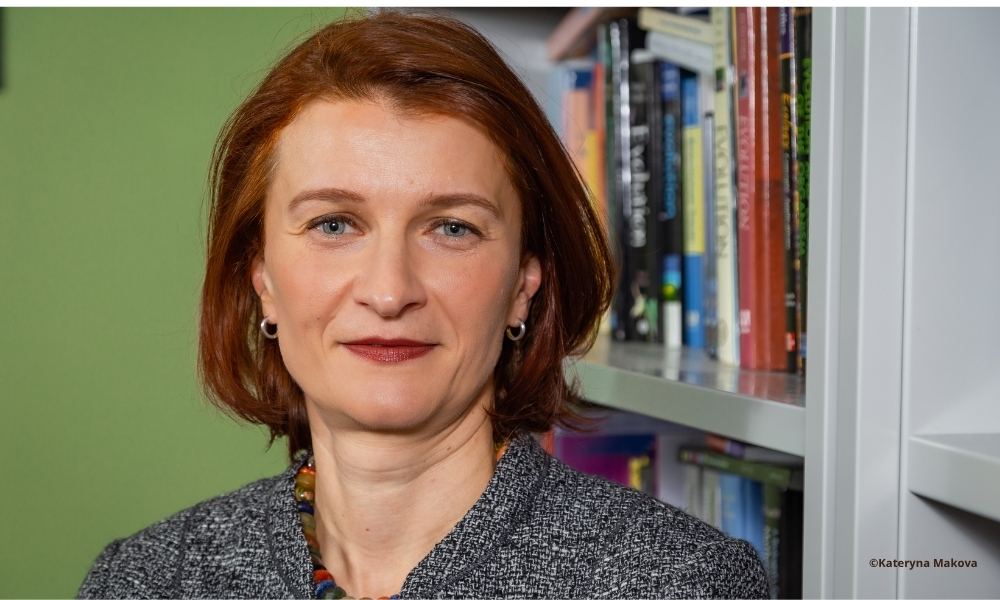IN THE SPOTLIGHT: DR KATERYNA MAKOVA

Dr Kateryna Makova holds the Verne M. Willaman Chair of Life Sciences and is a Professor of Biology at Pennsylvania State University, USA. She is also the co-author of a groundbreaking study that, for the first time, reveals the complete genome sequences of five great ape species— chimpanzee, bonobo, gorilla, Bornean orangutan, and Sumatran orangutan—and one lesser ape species, the siamang gibbon.
Sequencing the complete genome sequences of six ape species is a major genetic milestone. What makes this achievement so special?
I honestly thought this would never be possible in my life. Studying the genomes of non-human apes can provide valuable information about what makes us human, what differentiates us from other apes, and what DNA sequences are important for diseases. In medicine, for instance, scientists frequently study the variation in ape DNA that makes the animals resistant to certain diseases, such as AIDS. We had the ape genomes before, but they were not complete. Substantial portions were excluded as they were very difficult to reconstruct. Understanding how these portions evolved has only become clear now.
You have worked on this study for over two decades, and the team spanned borders and disciplines. Why did it take so long to sequence the complete genome of great apes?
Our goal was quite ambitious; we wanted to assemble the genomes completely without any gaps. Previously, we used short sequencing reads to assemble genomes. These reads could only analyse DNA in small segments, for example, 300 DNA letters (As, Cs, Ts, and Gs) at a time. Now, with long sequencing reads, we can process hundreds of thousands of letters at once. This advancement makes it much easier to piece together larger segments of DNA. We often use the analogy of assembling a jigsaw puzzle to describe this process. Just as it is challenging to fit together the repetitive parts of a puzzle, assembling genomes can be complex. However, with long reads, which function like a small number of large puzzle pieces, we can much more easily connect these regions.
You also produced complete sex chromosome sequences for the six great ape species, which were previously incomplete or unavailable for the siamang gibbon and Bornean orangutan.
The Y chromosome is important for human fertility, and the X chromosome harbours genes critical for reproduction, cognition, and immunity. Our study opens doors for many future investigations of sex chromosomes, how they evolved, and diseases associated with them. The living non-human great ape species we studied are all endangered. The availability of their complete sex chromosome sequences will facilitate studies of their sex-specific dispersal in the wild and of their genes important for reproduction and fertility.
As an organisation dedicated to orangutan conservation, we are very interested in how your findings could help save the critically endangered orangutans. Could you provide more details?
The accurate reference genome sequences of two orangutan species will provide important scaffolds to map genetic variation of orangutans in the wild for years to come. We will be able to study how variable, and thus genetically healthy, the contemporary orangutan populations are in the world. By monitoring the genetic diversity of orangutans in the wild, we can formulate conservation genetics strategies for managing these populations.
Yoo, D., Rhie, A., Hebbar, P. et al. Complete sequencing of ape genomes. Nature 641, 401–418 (2025). https://doi.org/10.1038/s41586-025-08816-3





